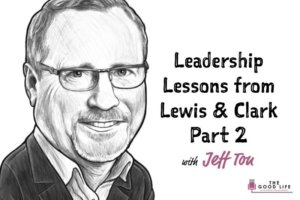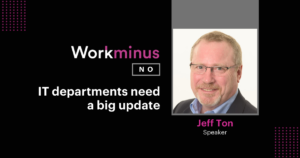You Can Develop Resilience
I chose to use this quote to talk about resilience when the world is on edge due to the Coronavirus.
“The best time to plant a tree was 20 years ago. The second best time is now.”
– Chinese Proverb –
No, the irony is not lost on me.
In its own way, this proverb says a lot about resilience.
As leaders, we cannot stand up one day and say, “Today, we are going to be resilient.” It takes time, it takes effort, it takes practice.
I’ve been involved in Information Technology disaster recovery in some way, shape, or form for over 30 years.
The most important lesson I’ve learned is that you must be prepared. Being prepared means:
- planning ahead.
- putting processes and procedures in place.
- testing the plan.
These same principles apply to personal resilience, team resilience, and organizational resilience.
Is your organization ready?
Is your team ready?
Are you ready?
Five Keys to Resilience
Building resilience in your team is much like building resilience in yourself.
Your team needs to learn when:
- faced with insurmountable odds, change the narrative;
- a retreat is not an option, face their fears;
- they are physically and mentally exhausted, take time to rest;
- each day brings new challenges, reflect on the day but move ahead;
- mistakes occur, don’t hold grudges – instead forgive.
Change the Narrative
We’ve all heard the axiom, usually attributed to Einstein, that “the definition of insanity is doing the same thing over and over and expecting different results”. Nowhere is this truer than in the practice of building resilience.
To change the narrative, try changing your perspective as you look at a problem.
We tend to get myopic as we struggle with a problem; by elevating our view, we get a different perspective (picture climbing a hill to observe the landscape ahead).
Many times this process reveals a different path forward.
Face your fears
Our brain has a way of showing us the worst possible outcome of a situation, even if that outcome isn’t all that probable.
Many times retreat (or procrastination, or avoidance) is not an option, and in fact, can lead to a worse outcome. Take that step and move forward with confidence.
By facing our fears, we build confidence; confidence builds resilience.
Facing our fears does not mean we are not afraid, but it means we are strong enough to move forward despite being afraid.
Rest
Sounds simple enough.
Our bodies and our minds get tired. We need time to recharge and our teams need time to recharge.
When faced with a challenge, rest can be just what we need.
This may be taking a break from an intense project by sending your team home early or even giving them an extra day off.
It may seem counterintuitive to rest with a deadline looming, but you and your team will come back the next day reinvigorated and ready to attack the problem head-on.
Speaking of rest…SLEEP is vitally important. Sleep Advisor provides some great recommendations based on your age.
Reflect
Reflection is not the same as rest. It helps to spend time reflecting on the day and on its challenges.
Some may use journaling (or blogging), some may use meditation, and some may use yoga or running.
The key is to think back over your day. What worked – and what didn’t? How did you react and why? What would you do differently the next time?
Writing down your reflections enables you to review them and learn from them in the future.
As your perspectives change, so too will the lessons in your reflections.
Forgive
This may seem out of place in a post about resilience, but not holding grudges – and not letting others’ mistakes eat you up – will help you be more resilient.
This is true for us as individuals and for teams.
Others are going to make mistakes.
Others are going to let us down.
Holding grudges merely serves to build walls and silos in an organization.
Forgive and move on!
Do You Feel Resilient?
If you don’t feel resilient, or you don’t believe your team is resilient, now is the time to develop the necessary skills.
Don’t wait another day.
Resilience is something you should continue to develop: learn the skills; put processes in place; and practice, practice practice.
I would love to hear your thoughts.
How do you practice being resilient?
 Status Go – Episode 96
Status Go – Episode 96

 Status Go – Episode 93
Status Go – Episode 93





